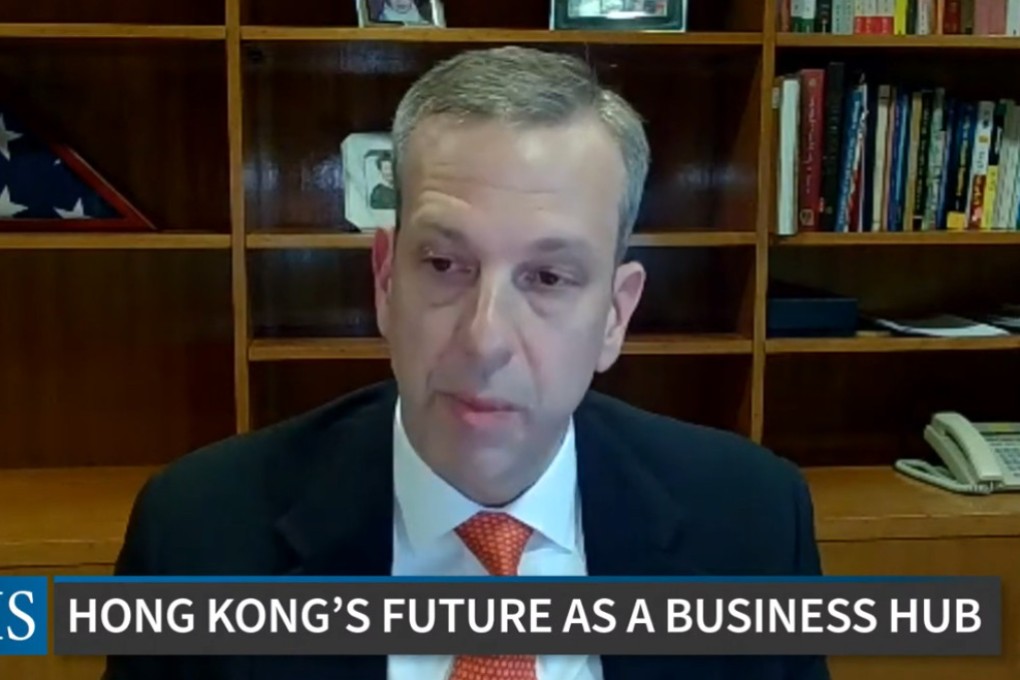China accuses US consul of ‘maliciously abusing Hong Kong’s national security law’ with comments on lawyer ruling
- Companies should be aware that the risks they face in mainland China are now increasingly present in Hong Kong, says American consul general
- Local government has impinged on city’s semi-autonomous status since national security law enacted after 2019 protests, Gregory May adds

“In light of these and other developments companies should be aware that the risks faced in mainland China are now increasingly present here in Hong Kong,” he added in remarks delivered on Wednesday at a Centre for Strategic and International Studies event for the Washington-based think tank.
The Chinese foreign ministry’s office in Hong Kong condemned May’s speech on Thursday, accusing him of “maliciously abusing Hong Kong’s national security law and the interpretation by NPC Standing Committee” and “intentionally smearing the business environment of Hong Kong”.
“The national security law tackles the undefended issue of national security in Hong Kong to clamp down on the small minority and protect the great majority of citizens,” it said.
The office said the way May defamed the city’s rule of law and freedom would “only unveil his perilous intention to trouble Hong Kong and suppress China”.
The Hong Kong government said it “severely condemns” May’s “untruthful remarks and smears” about the national security law, as well as the city’s rule of law, rights and freedoms.